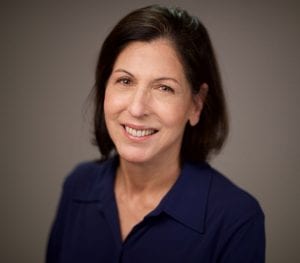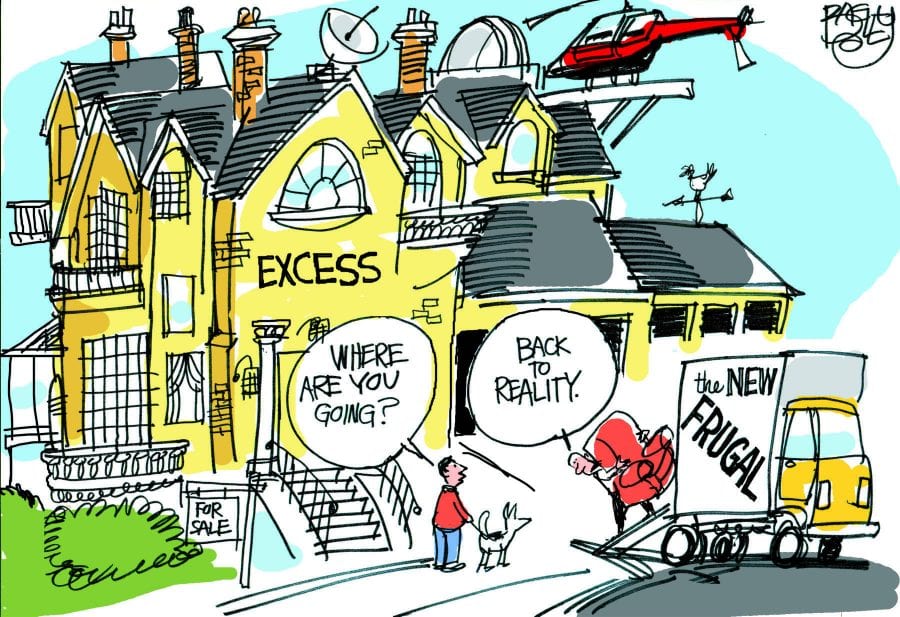BY FROMA HARROP
 The kids are bratty, the parents fighting, the homes a mess. It’s remarkable how American domestic life can breed so much dissatisfaction amid so much plenty.
The kids are bratty, the parents fighting, the homes a mess. It’s remarkable how American domestic life can breed so much dissatisfaction amid so much plenty.
Foreigners have made an industry of observing this paradox and offering Americans fixes. Restoring tranquility and, frankly, dignity is the goal.
Start with the Japanese commissar of decluttering, Marie Kondo. Her Netflix series, based on her best-seller, The Life-Changing Magic of Tidying Up, digs into the psychic pain lurking beneath American affluence.
Kondo visits Californians embarrassed by their multiple closets bulging with clothes they barely remember buying [or wearing]. Episode one features the parents of two small children.
Rachel and Kevin are at each other’s throat. A big issue for Kevin is that they pay someone just to do the laundry because Rachel doesn’t like doing laundry. He works 60 hours a week, and she is home most of the time with the kids.
Her explanation: “My kids are just, like, running around and being crazy, and we never get anything done.”
That’s true. The little girl constantly interrupts with her demands. Her parents, meanwhile, seem intent on asking the little tyke for approval. “Do you like that?” “Are you having fun?” And praise is nonstop. “You look so pretty.”
Perhaps some French mothers can offer guidance, as documented in the book Bringing Up Bebe. Author Pamela Druckerman, an American living in Paris, observed that while her children were throwing tantrums on restaurant floors, the French children were eating calmly with their parents.
“Why don’t my French friends ever need to rush off the phone because their kids are demanding something?” Druckerman writes. “Why haven’t their living rooms been taken over by teepees and toy kitchens, the way ours has?”
For the long answer, read the book. The short answer is that the French “educate” rather than “discipline” their children. They don’t yell at the little ones but rather convey the idea that when they want the children to stop doing something, they mean it.
Back in California, Kondo notes, “American kitchens are so large.” She smiles sweetly. Too bad the dishes are so piled up that you can barely see the expensive stone counters.
Kondo has the parents heap everyone’s clothes on a bed. The stack approaches the ceiling. She engages in some hocus-pocus about thanking the clothes, but the exercise centers on getting rid of things that no longer serve.
Kondo herself is a model of cleanliness and grooming. She wears spotless white tops with simple skirts. The couple, for all their mass of clothes, don’t dress particularly well.
I would love to have seen Kondo’s thought bubble as she helped Rachel neatly fold a pair of jeans so ripped up that parts hung off her knees. Far be it from me to turn judgmental on a fashion item adopted by masses of good Americans. I’ll pass that job on to Tim Gunn, an esteemed fashion consultant who, although American, possesses a good amount of Old World starch.
“Jeans are an American classic,” he states. However, “the ratty, holey, horribly faded distressed denim – don’t wear it!”
Before leaving, let’s put in a good word for Tan France, the fashion expert on the Atlanta-based Queer Eye. France is a Brit of Pakistani origin. His mission is to coax his American men out of their shabby T-shirts and dilapidated running shoes and into neat, stylish outfits.
He finds himself asking basics, such as “Do you have a laundry basket?” and “A hoodie is your favorite thing in your closet?”
Clearly, there is much work to do, and Americans need to import some help. January is a good month for shaping up. Good luck to us all.
– Froma Harrop’s columns appear regularly in The Oklahoma Observer
Creators.com








